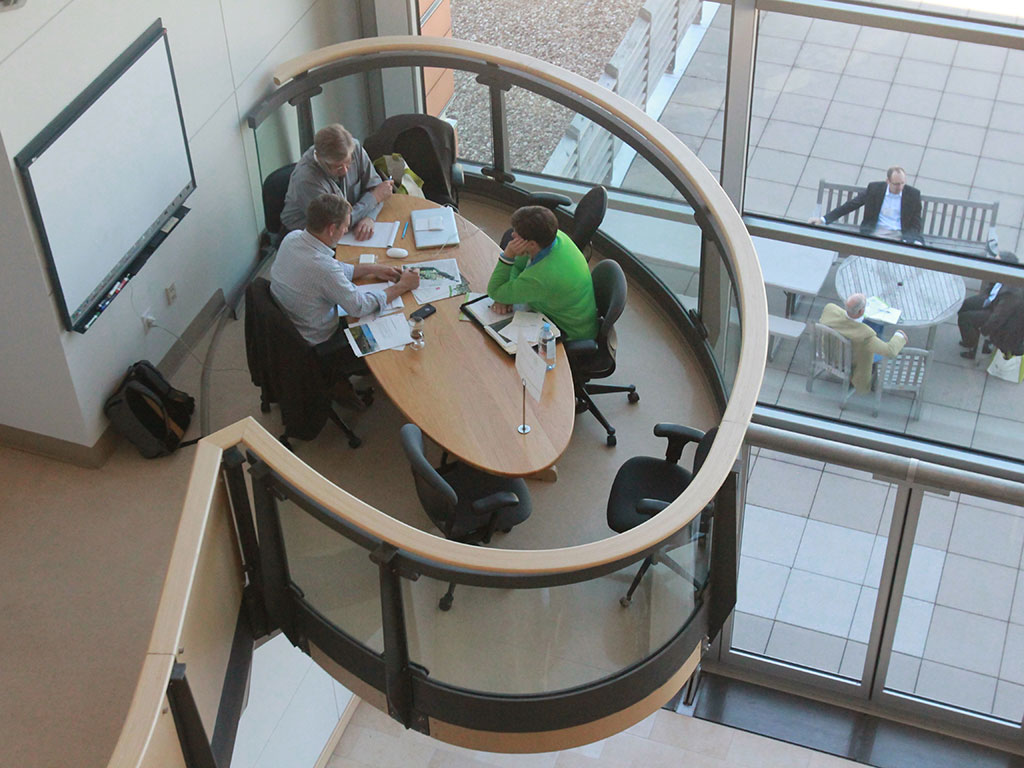Agriculture innovators prepare for September’s Ag Innovation Showcase
The Ag Innovation Showcase brings together the industry’s brightest minds in the hopes of securing a more efficient and sustainable future for agriculture
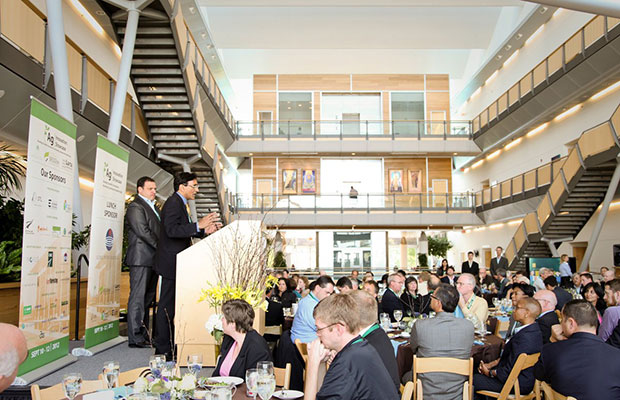
Rohit Shukla, Chief Executive of Larta Institute, and Sam Fiorello of Donald Danforth Plant Science Center at last year's Ag Innovation Showcase
The world’s most revered innovators, investors and thought leaders will gather later this year at the Ag Innovation Showcase to revolutionise what in some quarters remains an inefficient and environmentally destructive industry. Jointly managed by the Bio Research & Development Growth Park (BRDG), the Donald Danforth Plant Science Centre and the Larta Institute, the event brings together a diverse cross-section of opinions and directs attention towards the challenges and opportunities shaping – and reshaping – agriculture today.
Since 2009, the Ag Innovation Showcase has been the barometer of changing trends, issues, concerns and solutions in the agriculture industry. Every year since its inception, organisers have looked to modify, amend, replace or otherwise recalibrate the industry’s various sub-sectors and facilitate conversation between some of its most influential players.
Since 2009, the Ag Innovation Showcase has been the barometer of changing trends, issues, concerns and solutions in the agriculture industry
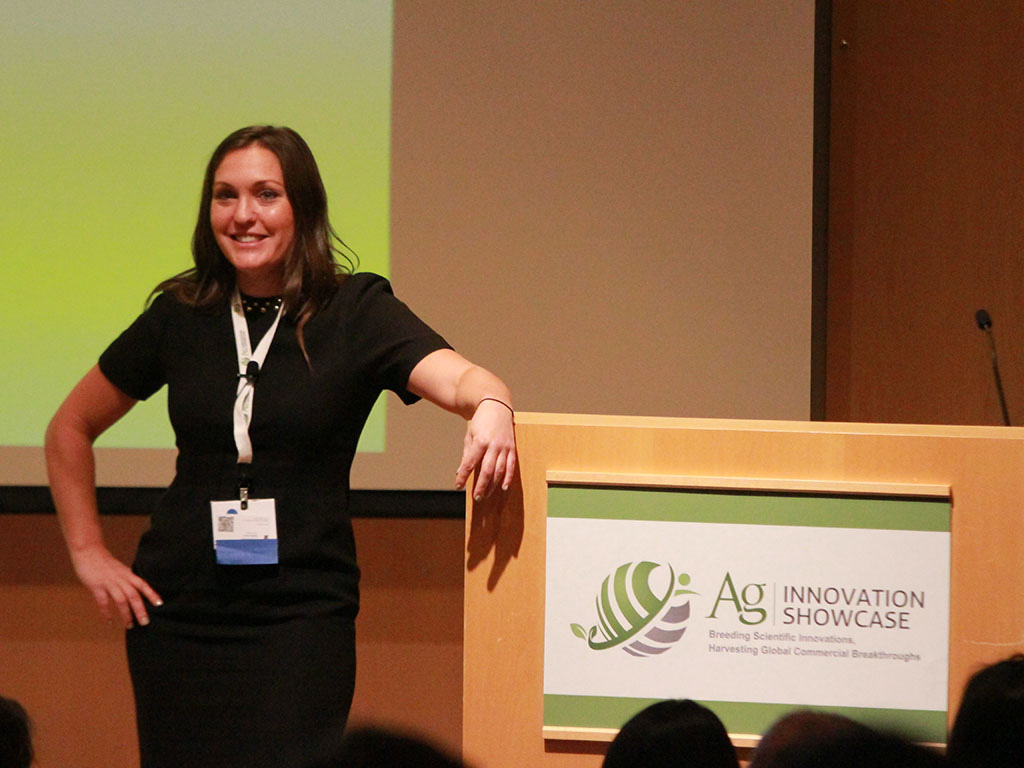
Ag Innovation Showcase
No stranger to groundbreaking developments, the showcase was early to shine a spotlight on “precision agriculture”, and highlighting developments in biology-based crop, plant and soil solutions that would confer new properties on plants beyond ‘biologicals’. More than that, it has presented innovations in food production, including so-called closed-loop farming, animal health and herd management, automation, bio-based and naturally-derived products, new crop alternatives and new lighting technologies.
Among the topics featured at last year’s showcase were food safety and the mapping of the food biome, the peril and promise of the regulatory environment, the convergence of different technologies in pursuit of ‘Ag 3.0’, and the understanding of new technologies for more sustainable agriculture.
Speaking to The New Economy, Claire Kinlaw, Director of Agriculture Practice at the Larta Institute, and Rohit Shukla, Larta’s CEO, said that by “using the Ag Showcase as the barometer for the evolution of agriculture writ large, we can point to three major developments”. First, they said, the rise of what was initially known as ‘precision agriculture’, a grab bag of sensor and measurement technologies, along with data analytics tools and software, has allowed farmers to more precisely provide inputs, acquire data, and generally make more informed decisions on the direction of their farms and crops. This development has evolved to become an even bigger grab bag, referred to under the catchy but unhelpful moniker of ‘big data’, and is used equally by commodities traders, weather forecasters and farmers, among others.
Second, the growth of novel biology-based products to improve crop performance has expanded beyond traditional GMO methods to introduce genetic changes across unrelated species. These new and improved processes encompass finer genetic editing technologies and the manipulation of plants as whole biological systems.
Third, according to Kinlaw and Shukla, bio-based products have had to fight harder than in years past to continue their pathway to commercial success, with the investment community having failed to realise financial gains and having cooled to this area of investment.
“Arching across all three of the above developments is the threat of climate change and the need to increase food availability and food value while achieving greater good for the environment. Can ‘big ag’ become sustainable and still maintain the efficiencies of large scale farming?”
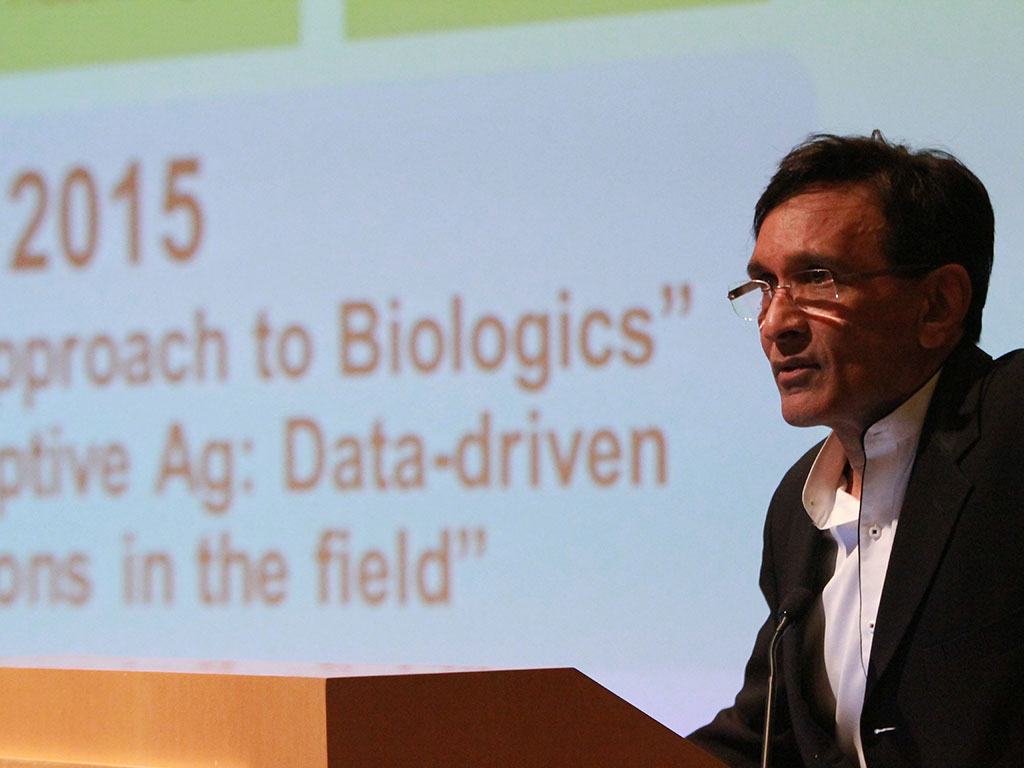
Challenges and opportunities
Looking at these three developments through a sustainability lens, each of them face challenges and present opportunities for achieving a truly sustainable agricultural and industrial economy. The number of players in precision agriculture/farm automation and digitisation means the landscape is confusing for the end user, and companies must endeavour to bring user friendly and robust solutions to the field. Which of these will succeed in integrating data and empowering farmers to maximise their outputs, all while lowering the financial and environmental costs for inputs, remains to be seen.
For emerging technologies in genome editing and data mining, the challenge is more to do with an uncertain regulatory climate and a lukewarm reception from the public. Again, it isn’t known yet whether emerging technologies will actually make it to practice and extend their benefits to the real world.
Bio-based products, meanwhile, must overcome the low price of petroleum and make the case for a largely more expensive alternative.
While the challenges number in the many, this isn’t to say there are not plenty of opportunities. For one, the prospect of improving the planet and creating a sustainable economy cuts across all three trends. “Precision ag offers the farmer the knowledge and decision tools to produce more at lower costs and with greater environmental benefit, potentially improving soils, consuming less water, and reducing the amount of chemical inputs for plant nutrition and pest management”, according to Kinlaw and Shukla.
Gene editing, systemic biology insights and data analytic tools, they continued, will provide crops that can thrive under changing climates and contribute all the more, for less, as part of a sustainable model. “Renewable bio-based industrial products open up opportunities to reduce our addiction to climate threatening petroleum and for the re-directing of waste as new inputs, paving the way for closed-loop systems that reduce greenhouse gas levels.”
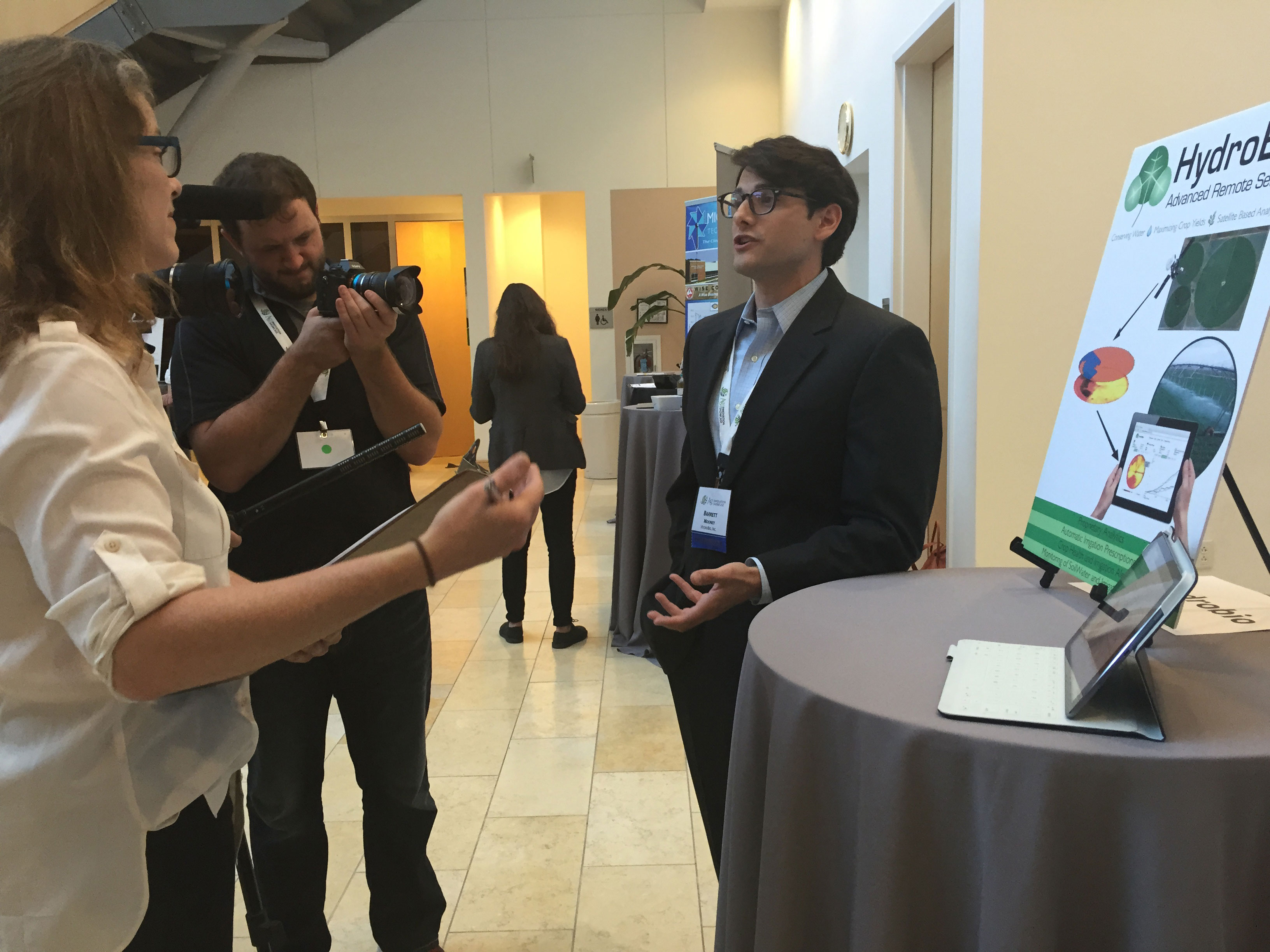
Larta Institute
Larta is “both a think tank and an instigator”, according to Kinlaw and Shukla. “It serves the ag innovation community in helping to accelerate the adoption of innovative concepts and technologies through the platform it has developed.” Outside of the Ag Innovation Showcase in St Louis, Missouri, Larta works on a number of events centred around the same topic. In doing so, Larta provides leadership and helps frame the discussion on issues and trends in agriculture innovation through its communication in print, online, and in public forums.
Under the Global Ag Innovation Network umbrella, Larta conducts a number of small networking events around the country to enable a more tailored and intimate discussion of the most notable trends in agriculture technology. Next, the institute provides active commercialisation assistance programmes for the US Department of Agriculture’s grantees, the likes of which are awarded grants based on innovative technologies they are developing. According to Kinlaw and Shukla: “We serve as an integral part of the team in helping them source customers, connect with partners, secure investment and commercialise their products and services.”
Going back to the Ag Innovation Showcase, Larta intends to include the public more effectively as a stakeholder in driving the adoption of emerging technologies. Featured in this year’s event is the issue of food waste reduction as part of the food value chain – looking at circular as opposed to linear models of consumption, while views from diverse farming perspectives across commodities, specialty crops and indoor agriculture will be featured throughout, as will perspectives on investment and profit margins among farmers. Last but not least, the showcase will consider pathways for agriculture innovations to travel from the developed to developing world, and the role of education institutions in the agriculture innovation ecosystem.
Asked about what they wanted to achieve as a result of the Ag Innovation Showcase, Kinlaw and Shukla said they hoped to see different stakeholders holding productive discussions on issues and trends in agriculture, and see these same participants make new connections that strengthen relationships among entrepreneurs, investors, ‘big ag’, government, and other stakeholders. “Innovation is furthered along the path of commercialisation through the connections that entrepreneurs, investors, and industry leaders make with each other”, they concluded.
The Ag Innovation Showcase will be held in St Louis, MO on September 12 through to 14.
